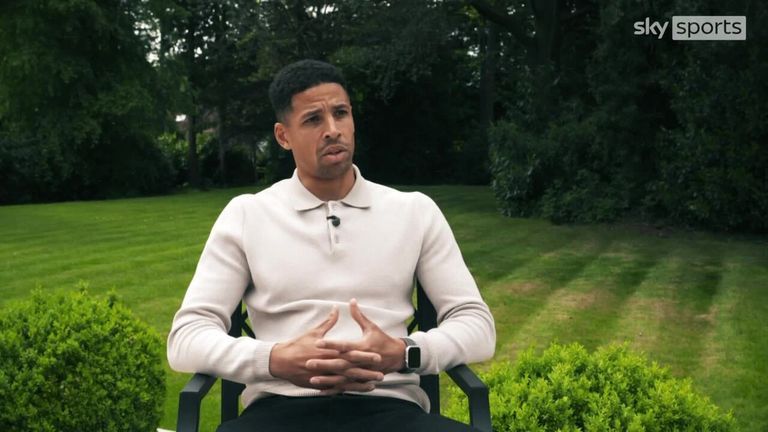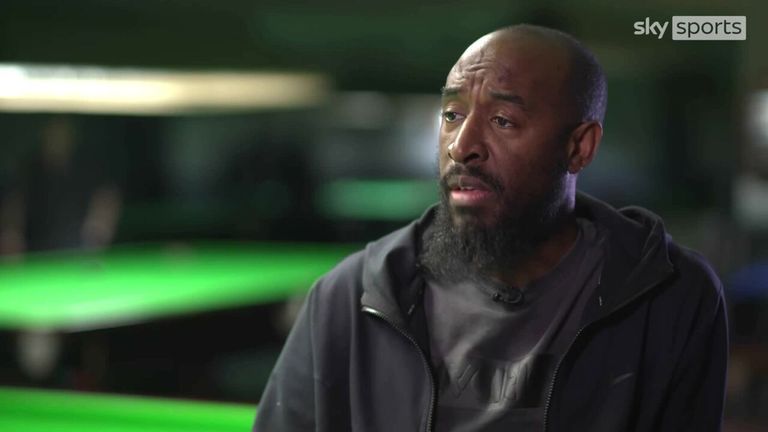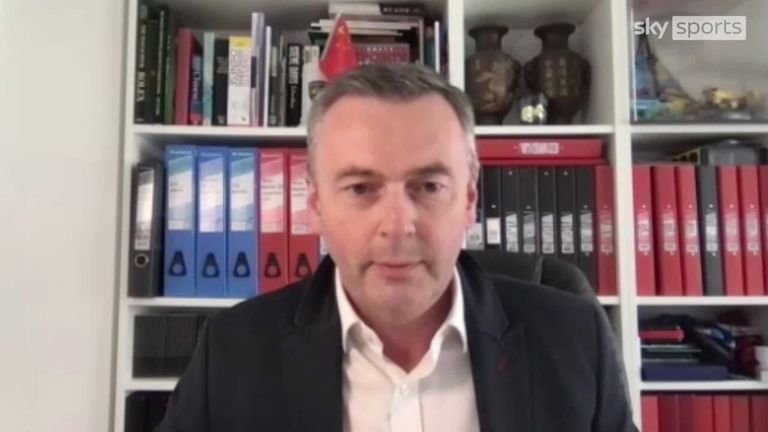George Floyd: Eight sports stars speak about the change of culture and their experiences during the last two years
Curtis Davies, Tymal Mills, Kruise Leeming, Rory McLeod, Ashton Hewitt, Desiree Henry, Alice Dearing and Ken Pitterson share their experiences; watch 'George Floyd 2 Years On...Has Sport Changed' on all Sky Sports channels tonight at 2230
By Kyle Walker
Last Updated: 25/05/22 10:42pm
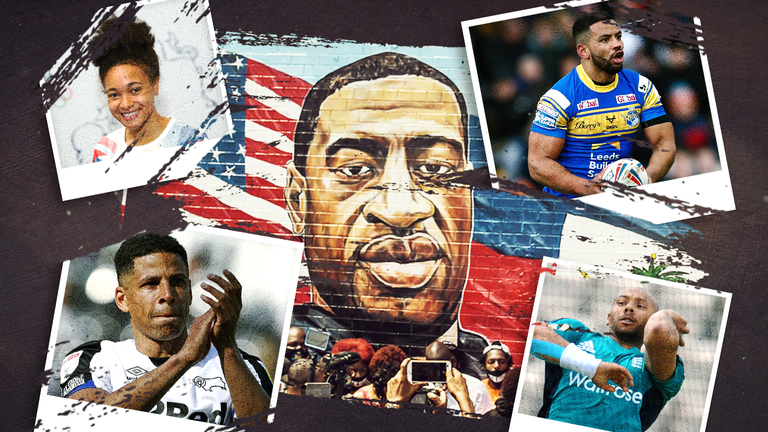
Two years ago many organisations promised changes after the murder of 46-year-old Black man George Floyd in Minneapolis. Nearly all sports pledged to be more equal. More diverse. And more inclusive. Have the events of May 25 in 2020 changed the culture in sport?
We spoke to sportsmen and sportswomen from eight different sports. What are their experiences? Have they seen a difference? What are those changes and are they enough?
These are the voices of the athletes…
Curtis Davies: Inclusion, fans, social media and black coaches
Curtis Davies is one of the most experienced defenders in the Championship. Now 37, the Derby defender has also played for West Brom, Aston Villa, Birmingham City and Hull City.
He told Sky Sports News he could not imagine the fear of living in America after the murder of George Floyd. He says that moment was "the one everyone actually stood up and listened".
Does Davies think football is now a more inclusive place compared to two years ago? "I'd say it is, yes."
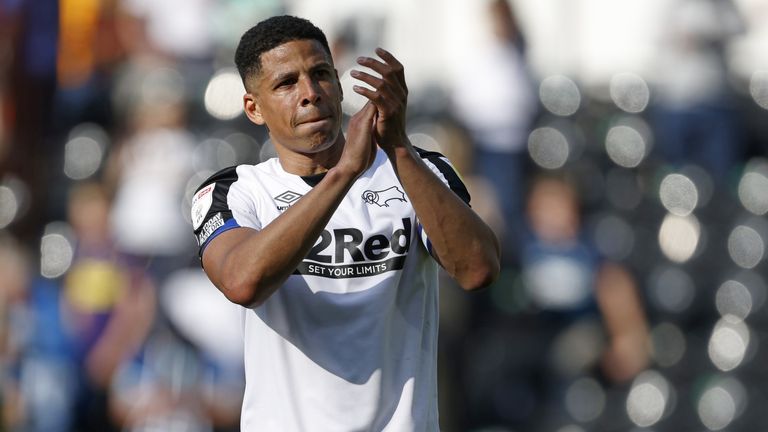
He adds: "I definitely feel at clubs, be it within the club, within the walls of the training grounds, I think it's very inclusive. If I talk about Derby it's just one big family. You don't see black, white, you don't see gay, straight. Everyone's just together."
Davies has also seen a change off the pitch in tackling racism at grounds.
"Nowadays, fans are self-policing. There's apps that you can report people and all you need to do is put their seat number and report people for racist or homophobic abuse, which I think has helped because sometimes people are scared to speak out. I think things have moved on that way. Inclusivity is just making sure that everyone can come to a game and feel comfortable."
The defender grew up on a council estate in Leyton. His mother is English and was born in London and his father is Sierra Leonean and was born in Freetown before moving to England as a teenager. He feels although inclusivity has improved in the last two years, racism on social media remains a big problem.
He says: "When it comes to social media, when it comes to day to day, you still get people getting racially abused.
"Most people get their news through social media. So therefore if you've got a Marcus Rashford or a Raheem Sterling that is telling you about this stuff and trying to educate you on this stuff. If you take any part of it, then at least they've done something good. It's fantastic for people to use their platform for any good.
"Ultimately for everything they have done good I'd hate to be in Raheem Sterling or Marcus Rashford's direct messages when they've had a bad game."
Many Black footballers in the UK have used their platforms to speak out in the last two years. Two years ago the Premier League and EFL both promised to provide support for players and made promises to continue to tackle racism in football. Players in England took a knee before matches to show solidarity against discrimination and racism.
But Davies feels players are taking a knee now "for the sake of it" and have "forgotten the meaning of it, or don't know if they should be doing it".
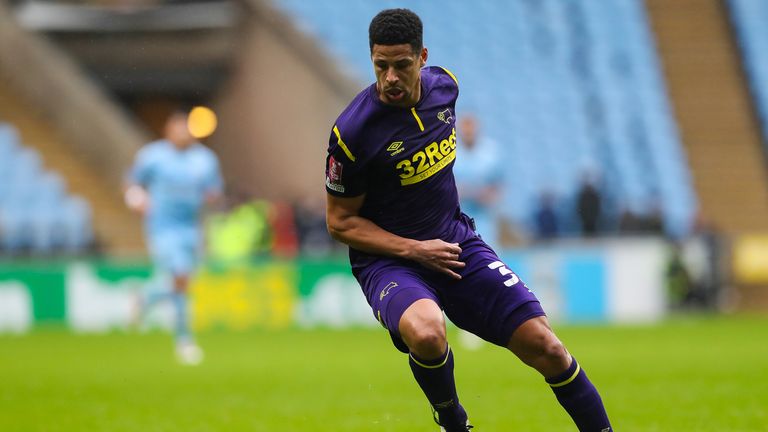
He adds: "I just feel that now it's kind of gone past that stage and I think there needs to be more action and talk about it rather than what is now seen as a token gesture."
For Davies, there has also been visible change in current Black players who want to become coaches.
"I think maybe the stigma has been removed a little bit more with current players. I think current players are of the mind that I'm going to do everything I can to be prepared and then I'm ready to get a job if I've got the chance to. I think before some former Black players thought they wouldn't bother doing their badges because they'll never get a job."
Tymal Mills: I've been lucky … but there's no quick fix
Tymal Mills had an unusual route into cricket. When he was 14 a friend at school who played cricket needed a player to make up a full team. He said he would go along to help his friend. Nine years later he made his T20I debut for England against Sri Lanka.
The England and Sussex player has played T20 cricket around the world and is in demand because of his fast bowling. But Mills admits his experiences have been more fortunate than others.
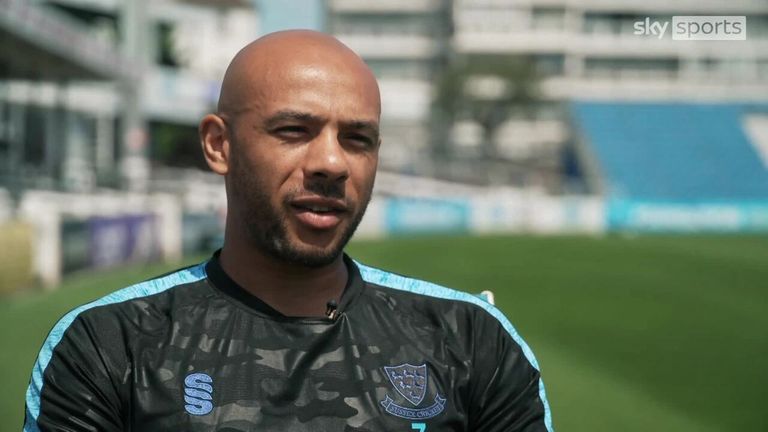
"I've been very lucky. I can't say that I've really ever been a victim of racial discrimination, at least directly. I don't have that experience."
But Mills has witnessed some clear changes in cricket's culture over the last 24 months.
He said: "I've definitely noticed that people are more aware of what they say, but also more open to listen and to talk and to understand each other. I think that's quite important. I think in the last two years with what's happened all around the world, within cricket, guys are definitely more conscious of that and more aware and just trying to make their own environment as welcoming as it can be.
In terms of making professional cricket more diverse, Mills adds: "There's no quick fix for this. That's something I'm very aware of and I believe in.
"I think the environments are more inclusive. The challenge is to get more diversity in those environments. You have a lot of guys and girls from diverse backgrounds playing cricket at a young age and then it doesn't filter through to the professional game.
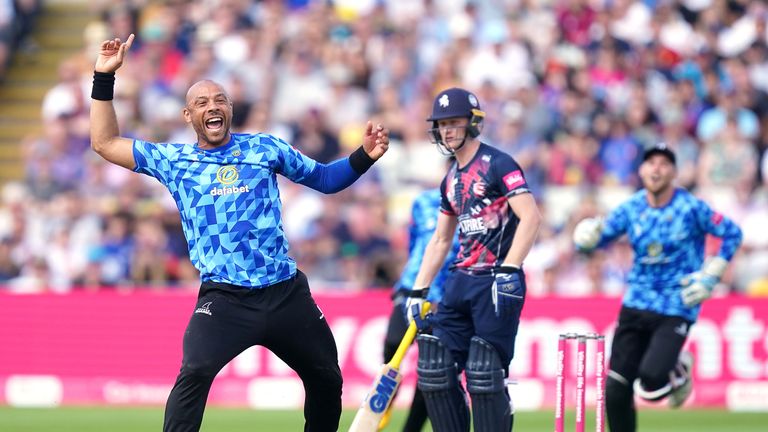
"So that's the work that all cricket clubs or counties (and) the ECB have identified needs to change. And that's a generational thing, isn't it? That's something that's 10 years, 20 years. Hopefully that work's being done now and we'll see it in the future.
"I'm hearing all these stories that come out and people that are having bad experiences and looking at the numbers I'm one of five or six Black English players playing professional cricket.
"There's only a couple of those who were born in England as well. Those numbers don't lie. They're factual. So it's looking at why. Doing anything that I can to help at lower levels to try and - I don't want to say inspire people like me - but to come through and play cricket."
The 29-year-old England bowler praised the work already happening in cricket. "There are more and more initiatives starting. Ebony Rainford Brent's done great work with the ACE (African-Caribbean Engagement) Programme that is spreading all around the country," he added. The ECB has also provided investment to ACE to reach more areas around the country.
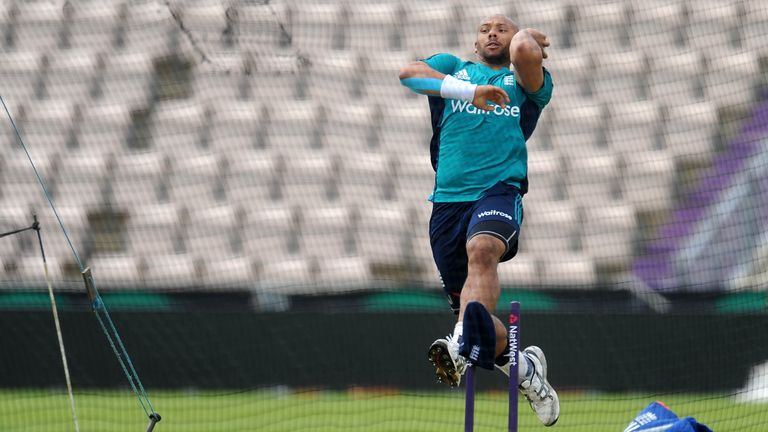
Mills says compared to football, cricket is not "a very inclusive sport. It's a difficult sport, expensive sport, it's a time- consuming sport. There's a lot of travel."
But Mills identifies a way of making the sport more accessible which helped him when he was a teenager.
"When I was young my mum didn't drive so I was having to get public transport or rely on lifts," he said.
"And I was lucky enough to get help from local councils and Essex helped me with getting grants and bursaries and help pay for travel and things like that.
"The more of those schemes that are available to guys and girls to get on the park and playing cricket, especially in areas and in surroundings where cricket might not be the easiest option. Hopefully we'll get more and more boys and girls playing cricket."
Kruise Leeming: If you see it ... you can be it
Leeds Rhinos captain Kruise Leeming was born in Swaziland (now Eswatini) and spent the first four years of his life there.
Now in a leadership role, this season's new captain praises his club and rugby league for the work done over the last two years. But how has the culture in celebrating diversity changed?
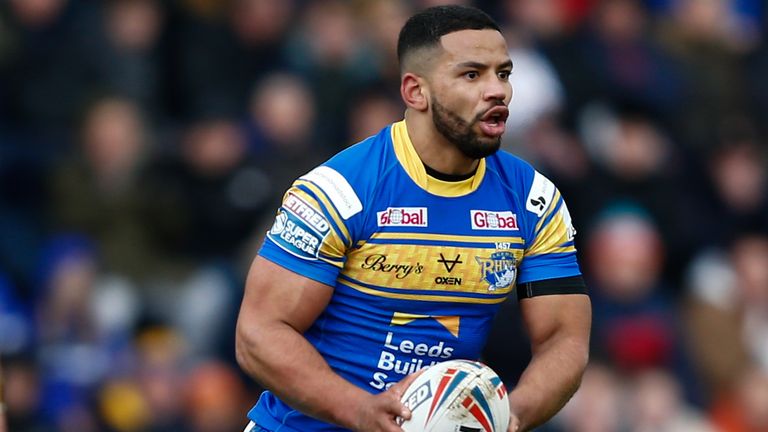
Leeming says: "I think it's been great for us as a sport. I think what it's done for rugby league is instead of my experience, instead of the maybe talking about it it's just created awareness and maybe we celebrate it more now.
"We celebrate having different ethnicities and different backgrounds in rugby league, whereas before it was you'd have three or four Black lads play for your team. It was just normal and wasn't celebrated as much.
"Now you look back and you've had Martin Offiah, Ellery Hanley. At Leeds we've got like a heritage wall where these people are put on show and we get a chance to celebrate their lives a bit more."
Leeming says his mother set a "great example" by coming to England as a Black woman and breaking barriers.
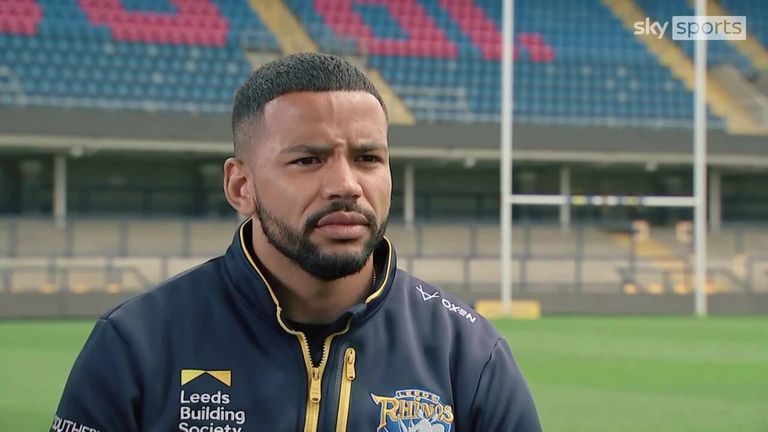
"She made her own business. And she set such a good example for me of not only being a woman but being a Black woman as well. She made it possible for me to be successful because I saw her being successful. She always made me strong and proud of where I come from because of what she'd done."
The England and Rhinos hooker is very positive about the change in culture in rugby league and says the sport and all the teams are united.
Leeming says: "We're blessed within our sport that it's very limited I think, the abuse that you do get. It is still happening and there are still fans and the odd word gets said, which is so disappointing. But I think on the whole, for us as a sport of rugby league, I think we're so blessed. And I think that [the abuse] it's very minimal.
"I think Leeds as a community invites so many different backgrounds to it as a place anyway. From the rugby league side our coaching staff, we've got Jamie Jones-Buchanan (Rhinos assistant coach), we've got Chev Walker (Under-18s and reserves head coach). I'm a Black captain of a massive organisation and I think that is bringing through the young lads and they're seeing these people in these high-end roles. And if you see it, you can be it.
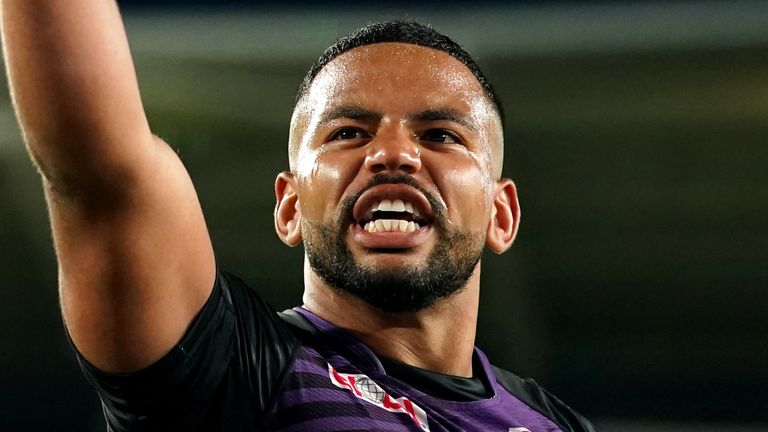
"Everyone at the top has got behind it, all the teams have got behind it, all the captains have got behind it. And I think like our sport is one of the best for being for Black Lives Matter. I think we've got it right."
Rory McLeod: Snooker has done nothing for Black people
"He who lives it knows it." It is a phrase that Black snooker player Rory McLeod repeats more than once in his interview with Sky Sports News reporter Kyle Walker.
McLeod has been playing snooker at an elite level for over 20 years and remains the sport's only elite Black player. However, with all his experience the 51-year-old says he has seen no change of culture in snooker.
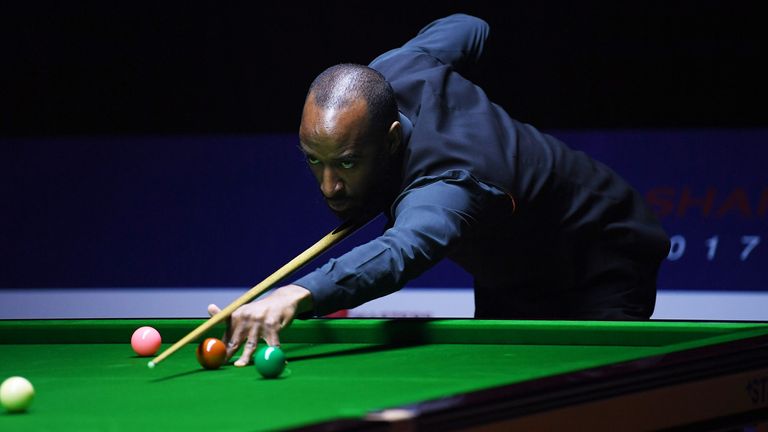
McLeod said: "They could be doing a lot more than what they're doing because they're actually doing nothing.
"I'm the representative for Black people in snooker and I haven't seen anything being done in my direction.
"When you talk about on tour and you've got all these different nationalities and races on tour. If there's not a European on tour - give them a wildcard, get them on tour.
"If there's not an Indian on tour - give them a wildcard get them on tour. Is there no Australian - give them a wild card get them on tour. South American, American get him on tour. Give him a wild card. No Black player on tour - ahhh don't worry about that…
"I'm not bitter or anything. I'm just telling you how it is. In snooker I've seen no changes and I'd be the first one to notice."
McLeod says he has been the only Black player on the snooker circuit for over a quarter of a century. And as the only Black player seen at tournaments, venues and the players' lounge, it means people in snooker don't know "how he feels" and he has had to "deal with it" for many years.
McLeod, who is born in Northamptonshire but is of Jamaican descent and is a Muslim, is well known on the snooker circuit and is a ranking tournament winner. He won the Ruhr Open in Germany in 2015.
One of his finest achievements is beating second seed Judd Trump 10-8 in the opening round of the World Snooker Championships in 2017.
The 51-year-old wants to see a change in the culture towards Black snooker players and more funding and support for those who do compete at a high standard.
He said: "I've inspired a lot of Black people to play snooker or want to do it.
"But then … a lot of people aren't willing to spend on Black people either. When I talk about sponsorship and things like that … my sponsorship funding has been very minimal, if at all."
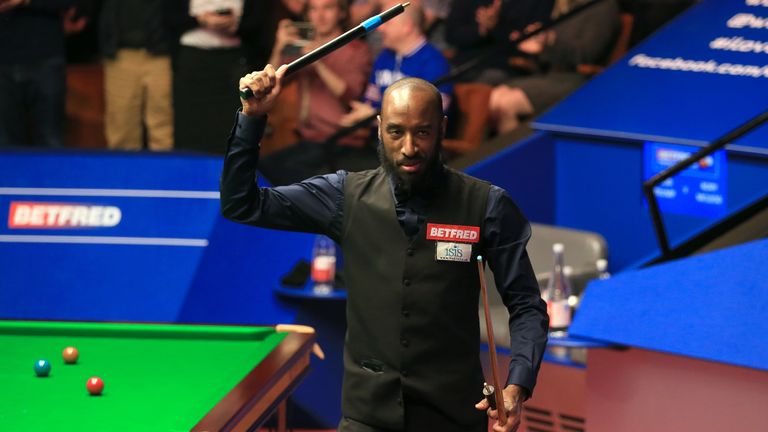
When comparing snooker to other sports who may have made progress in Equality, Diversity and Inclusion and promised a more inclusive culture for Black people, McLeod says: "If that's the case I think, well maybe snooker is still in the dark ages.
"I think the people who are in charge of these association establishments of other sports, they've probably taken more of a concerned attitude towards it."
He says the lack of representation in snooker is hampering its drive for more diversity.
"You know, they don't see Black people playing snooker, so they don't see that other Black people might have that skill. Whereas they see other Black people playing all other sports.
"But I think it's down to the establishment being the ones who initiate the interest. And I haven't had a conversation with anyone.
"I've wondered why snooker, the governing body hasn't come to me in order to promote snooker in the Black community, promote me a little bit more in order to get Black people involved in snooker."
McLeod says currently it might be better for young Black kids to try making it in other sports. He said: "They're better off going into things like football and things like that because at the moment as it stands coming into snooker, it's a lot of headache and a lot less reward. And it's tough."
World Snooker 'disappointed with Rory's comments'
In response to the interview, The World Professional Billiards and Snooker Association chairman Jason Ferguson wanted to speak on camera to put forward his view.
Ferguson told Sky Sports News: "I'm very disappointed in Rory's comments and really they come from a position of Rory McLeod really wanting to have some kind of help to maintain his tour place. What we are is an opportunity for all, providing an opportunity all over the world to qualify for the World Snooker Tour.
"We don't judge anybody within the sport and look at where they come from and what they do. To say that we've done nothing is completely unfair. I took over the WPBSA chair in 2010. There were only around four countries which had players on the World Snooker Tour outside of the UK.
"Pre-pandemic we were up to 22 countries so that tells you about the growth and expansion. The sport comes from a position of a very UK-based sport and that's been a challenge over the last 10 years to expand our boundaries and bring more people into the sport."
"In 2019 we were successful in putting snooker in the All-Africa Games. For me that is a major breakthrough. It's like what we did in Asia which brought China, Thailand and all the other Asian nations into our sport."
On the lack of Black players playing to a professional level, the WPBSA chairman added: "It is about numbers and it is about us trying to improve those numbers."
"We have to not single people out because they're black players. We have to say we are a sport for all. It's about providing an equal opportunity for everybody in the world and that is a challenging thing especially travel as it is at the moment."
McLeod is currently playing in Q school to qualify for the main professional snooker tour and Ferguson says he is likely to see him in person very soon.
"I will shake hands with Rory as I always have. I have known Rory McLeod for probably 25 years," Ferguson said. "He's a lovely guy. I consider him as a friend and a colleague not somebody who's a Black snooker player. And he'll be given the same opportunities as anybody else."
Ferguson also sent a message to any youngsters who might be unsure of snooker's commitment to equality and diversity.
"I will promise that every single person in every community will get the same opportunity in this sport. Don't lose the dream. If snooker is your sport and your dream to walk down those steps at the Crucible theatre do not lose the dream."
Ashton Hewitt: I've seen progress but is it still a priority?
Welsh rugby union player Ashton Hewitt plays for the Dragons and has also represented Wales' U20 rugby team.
In the last two years he has spoken openly about equality, racism and diversity since the global Black Lives Matter protests after the murder of George Floyd.
Hewitt has a British Jamaican father and the 27-year-old winger feels just using Black players as role models in rugby union will not be enough to make meaningful changes in equality and diversity.

He told Sky Sports News: "I think it'd be quite difficult to say we should be poster boys just for that sort of purpose. I think it's a balance.
"I think we need to take that responsibility of being role models ourselves with our behaviours and our performances on the pitch. But then it's the responsibility of the club then in terms of their community programmes and engagement of making sure that we're appealing to all of the different demographics and being really inclusive in that.
"And not sticking to the classic demographic of rugby in this area. Looking at season tickets and saying, why is it only white men over 60 who are coming to watch us and those sorts of things.
"How do we appeal to other communities or other groups of people within the community? And I think that's where the balance sort of lies."
Two years on, does he think society remains engaged in delivering the changes many sports promised?
"Not everyone, no…" Hewitt said.
"I think there were people who were interested, but where it doesn't affect them, where it's not visible to them every day they forget about it because they're not exposed to it. They don't understand what it means. It's just a shame.
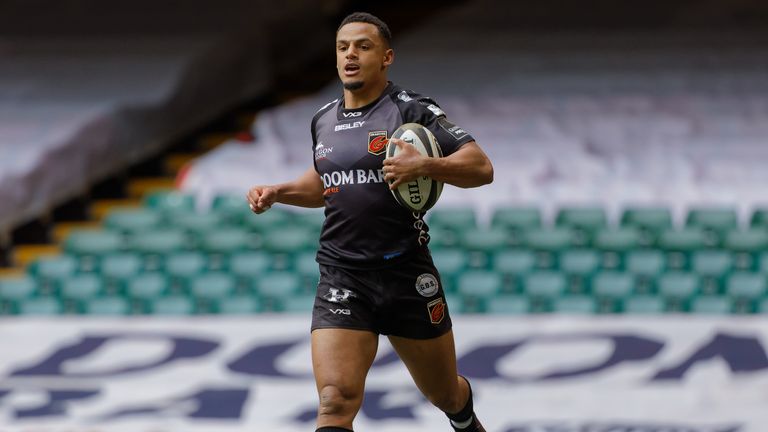
"And as a person who's so passionate about it when you see that sort of tokenistic care for a situation or a social issue, to then have them sort of forget about it or not pay as much attention or give up on promises that were made in terms of addressing their organisation's problems and putting it on the backburner is a bit of a kick in the teeth, if I'm being honest.
"Especially when you feel like you're trying to do so much work yourself for something that affects you."
Hewitt has mixed heritage and says he is generally accepted as a Welshman who plays professional rugby.
However, he has experienced tough times, adding: "But unfortunately you've got a group of people who aren't afraid to express that anyone who's not completely Welsh with white skin - they're not Welsh. I've had it so much on social media in terms of 'you can't be Welsh, you're not Welsh… you're mixed race - you're not accepted by Black people or white people. You're stuck in the middle. No one wants you to be associated with their heritage..' and those sorts of things.
"And I've had quite a lot of that, which is probably one of the most hurtful things. The vast majority of people are accepting of where we are today in terms of representing your heritage. And that can be done in different ways, and it looks very different for different people."
Can the rugby union authorities do more to make the cultural changes he wants, to ensure rugby union is more diverse and inclusive?
Hewitt says: "I think slowly it's changing, but the question for me is: 'is it a priority?'
"If we talk about how long these problems have existed, you know, is it good enough to be like we're slowly making progress now? For me, it's not. It needs to be a priority at the top of the list. If you care about it show you care about it.
"There's an argument that is changing. My club (Dragons) have been amazing but they're the first to admit that it's still a learning curve for them. I've experienced it for long enough for me to be... 'we haven't really got the time to be waiting to see how something plays out or take our time' with this sort of thing.'
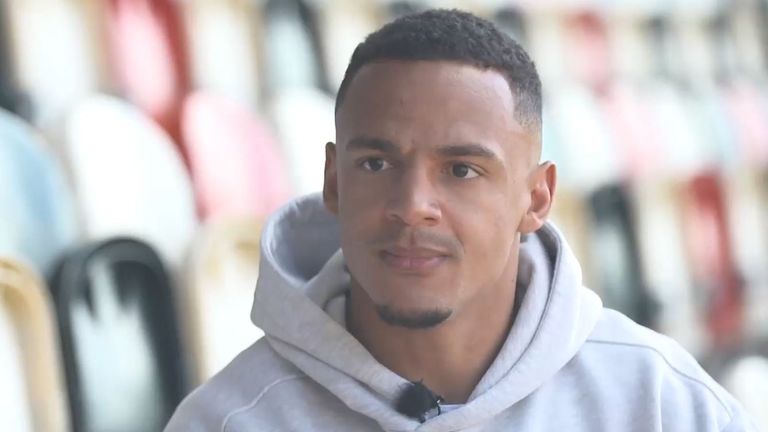
"So I think the sport is on a journey in terms of changing. It's going to be forced to, but at the moment, I don't think there's enough or at a quick enough pace."
In response to Hewitt's interview, the Welsh Rugby Union performance director Nigel Walker told Sky Sports News: "Ashton Hewitt has been a fantastic advocate on this subject and we welcome his comments.
"We passionately want our sport to be welcoming, inclusive and representative of our communities."
Desiree Henry: Don't get excited with the bare minimum
"I was just a young girl that just wanted to do really well in her sport of athletics," says Desiree Henry, who admits she has been living her dream.
Her success so far includes Olympic bronze in the 4x100m relay at the 2016 Olympics. She followed that in 2017 with a silver medal in the same event at the World Athletics Championships in London.
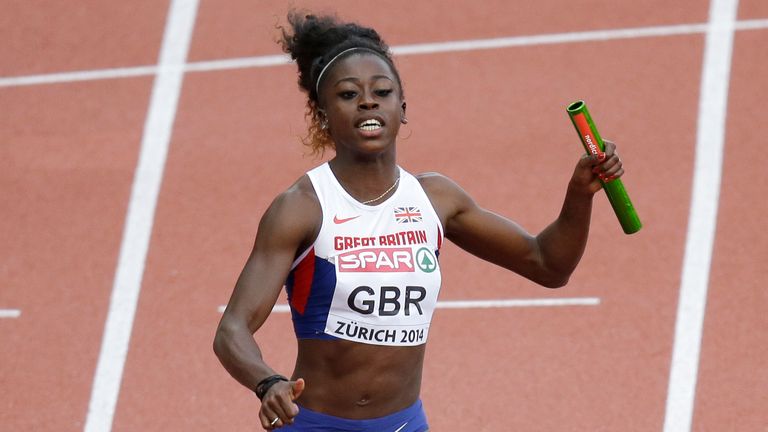
She reflects on her personal experiences over the last two years, and describes the improvement she has seen as the "bare minimum."
Henry, an English sprinter of Antiguan and Guyanese descent, said: "As a young person, you think of slavery, racism, all that kind of stuff as something that's happened in the past. You know, we're in a new era, we're in a new way.
"And the moment I saw the George Floyd video, I was just like, that's a moment going backwards in history.
"The fact that a police officer was convicted … it just kind of sets things back years and years.
"And as much as I want to say things have improved as time has gone on, I just don't feel like we should get excited over the bare minimum."
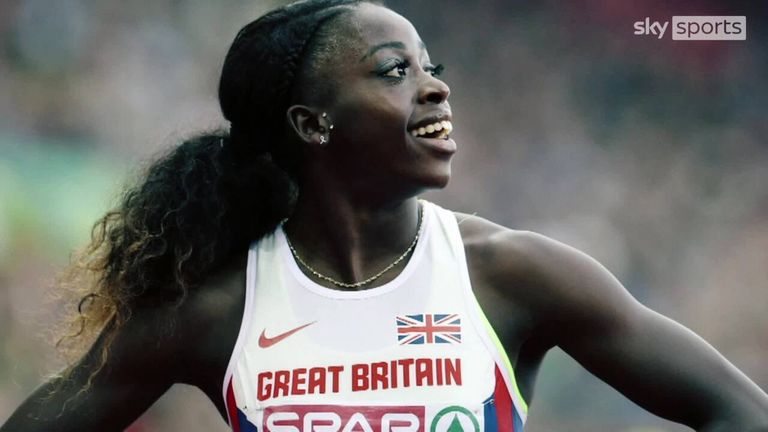
Henry also talked about the recent events in America where an 18-year-old white man shot dead 10 Black people in what authorities called a racially-motivated mass shooting at a US supermarket in the city of Buffalo, in the state of New York.
"That shouldn't happen in this day and age but unfortunately, it does happen," the 26-year-old said speaking at the Olympic Park in East London.
Part of the change in culture Henry has seen is athletes willing to use their voices to speak out. She explains why it is so important to her.
"So as much as I'm an athlete and I'm able to go out there and perform, it's hard to ignore what is going on out there in the world right now. And racism is still very, very active unfortunately.
"We're not just athletes, we are individuals. And when there is so much going on around the world that affects you directly based on the colour of your skin, you feel that it's not right to keep quiet. You have to speak up.
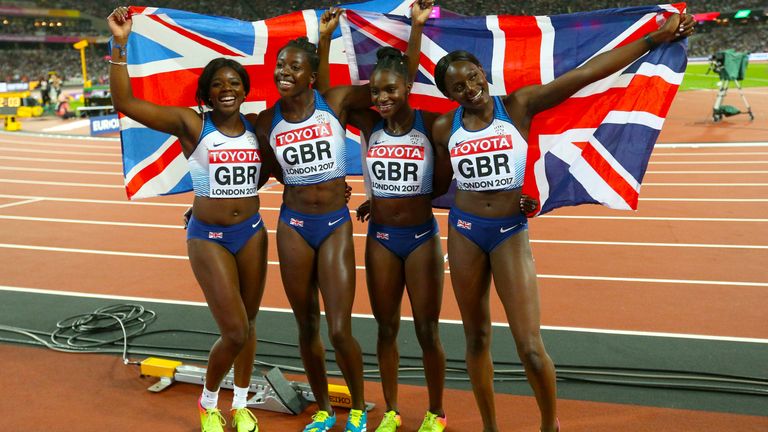
"You have to mention, okay, I'm really, really glad to have your support as an individual from an athlete perspective. But I kind of need your support on these political issues to be able to voice them, to be able for the people at the top to not only just hear and retweet, but actually make a difference.
"Because even myself after I've done competing, I'm still a Black female individual where I have to face certain things. And so I feel like as athletes to just have the confidence to speak up and even if you are penalised, I'm sorry, but not all money is good money at this point.
"Certain things you're going to have to be willing to take a hit or a sacrifice as long as you know that you have integrity, you have your morals, you have your positive things that you want to push across.
"But it's scary. But you know what? History-making and making a change in history is not easy. So I feel like it also starts with us just to have more conversations."
Ken Pitterson: After 20 years I'm seeing changes
For over 20 years people in racing knew Ken Pitterson's voice more than what he looked like. He is one of horse racing's best paddock experts. He still travels around the country to visit racecourses and remains committed to working as hard as he can.
Being behind the scenes has given Pitterson one of the best views to analyse the change in racing over the last two years.
And as one of the few Black faces in racing he has a simple strategy to improve diversity. "Racing has got to open its doors," he says in an interview at Lingfield racecourse near his home.

"They've got to go to inner cities. They've got to go to other communities and try and embrace them. Try to explain how good the sport can be because the sport has so many assets to it. But the point is trying to say to people, you can come into our sport and we will accept you and respect them.
"In horse racing they have a race title. There was no race title regarding Black Lives Matter or anything. At least acknowledge what has happened... which I thought was quite disappointing if I'm being honest, because there was an opportunity where racing can say 'look, we stand by what's happened' but they didn't."
Speaking of Floyd's murder and the progress in racing in the UK, Pitterson said: "What really affected me was that I thought of situations when I was young, when I got stopped by the police. And that could have been me. That could've been anyone. That's the thing that really hit home."
Pitterson says he has seen real change at his place of work across the country.
"And the flip side you find now when you go racing, people do respect you more. And if people say things which are inappropriate, now more people will stand up and say, 'look... that's out of order'. I'm not saying it's all the time but I do feel that when I go racing now. People are a bit more wary of what they're saying which can only be a good thing.

"I remember someone was doing an interview with me. He said to me 'now don't take this the wrong way Ken... are you Black? Are you coloured? Are you this?' And I said, 'No, just Ken Pitterson'. Just call me that. My colour has got nothing to do with it. Just call me Ken Pitterson.
"He said perfect. I think we've all got to treat each other as one human race and try and embrace everybody."
And Pitterson ends the interview with optimism. "There seems to be a better acknowledgment and feel in the sport but that's from my perspective. Some people may come and say that's not their experience they've had. It's going to take time. It's not going to be overnight.
"And some people don't want change. We know that. But hopefully with youngsters, the way they're thinking, the way they're shaping their lives, things hopefully will change.
Alice Dearing: How swimming is changing stereotypes
In August last year Alice Dearing made history in Tokyo when she became the first Black woman to represent Great Britain at a swimming event at the Olympics. She competed in the 10km event and she is keen to make more history.
Dearing is very optimistic about the change in culture in swimming and wants to help more people from a similar background to take up swimming and prove stereotypes should not be taken seriously.
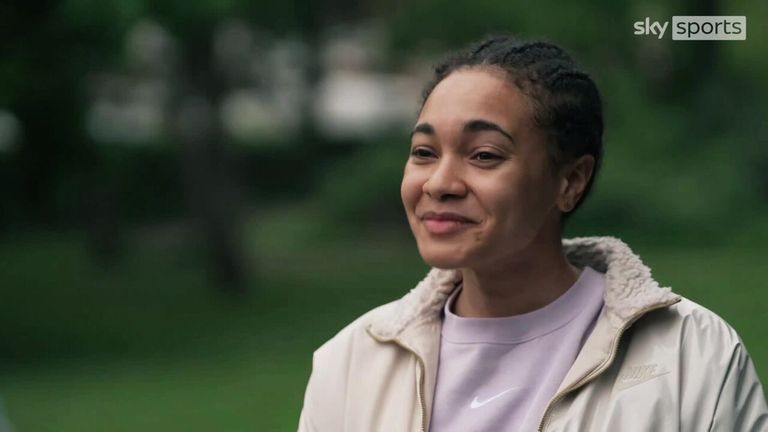
Does British Swimming share her passion to change the culture and make the sport more diverse? "I like to think so, yeah. Of all the people I spoke to in swimming, I think so."
She told Sky Sports News: "You will always have that unfortunate minority who don't share that view, who see it as very black and white in terms of like it's for one type of person and that's it. But I like to think that's a tiny minority. I think the majority of people are really happy to see a variety of people swimming because the more people we have swimming, the better facilities we'll get, the more money that's in it. It's a knock-on thing."
Dearing is one of Britain's best open water swimmers. She grew up in Birmingham and started swimming at the age of eight. In 2019 she had already decided to use her voice to inspire change. She had also started working as a lead ambassador for the Black Swimming Association to improve diversity in aquatics. Is Dearing confident swimming is moving in the right direction?
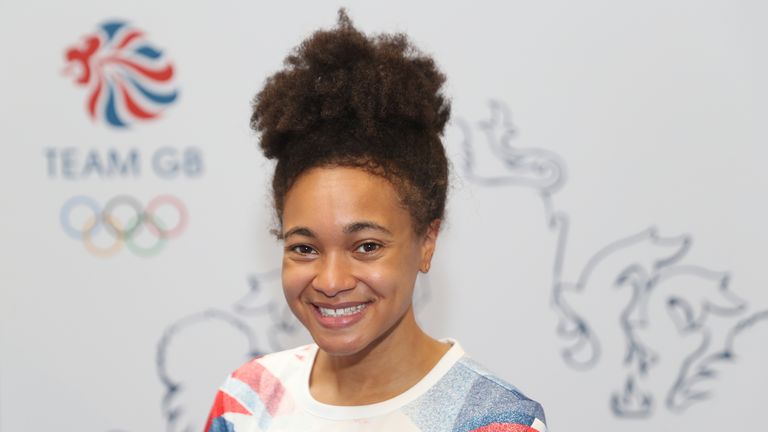
"I genuinely am. I think myself and the Black Swimming Association - the work they're doing is absolutely amazing. And we're working with the Royal National Lifeboat Institution on two pieces of research," she says.
"One of them is looking to dispel the whole idea of Black people and bone density... not being able to swim. And we're fairly certain that it's absolute rubbish, but because it's such a widely believed myth, we want hard research, hard proof that it's not true and then we can slowly start to break down those barriers.
"And then we're also looking at why Black people don't swim. So we're doing lots of interviews, lots of research into those barriers that Black people feel are affecting them, affecting their communities, and start to work to break those down as well.
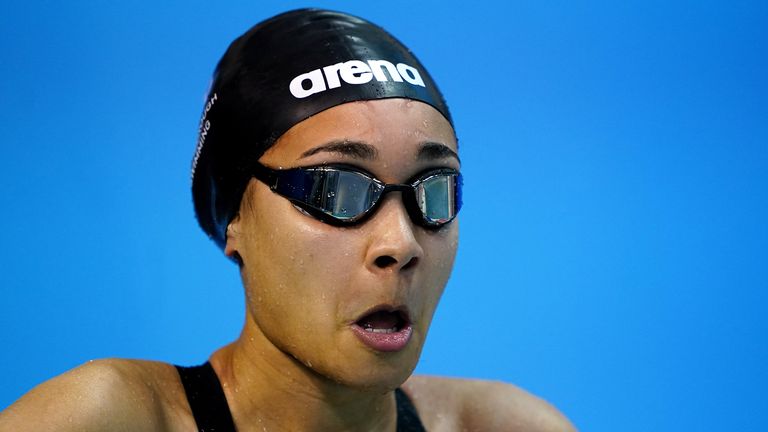
"This isn't a quick fix. We're not talking like in a year's time, everybody's going to be swimming. I think it's the start of something."
Right now Dearing is optimistic the change in culture in swimming will bring lasting changes. And she is happy to play a key role to bring about a new inclusive culture that finds the next Alice Dearing.
The reporter's view
Sky Sports News reporter Kyle Walker travelled around the country to interview five of the athletes. He spent time with Rory McLeod, Ken Pitterson, Alice Dearing, Ashton Hewitt and Kruise Leeming and gave us his thoughts…
Over the past few weeks I've had the pleasure to sit down and talk to some incredible people and listen to their stories. One thing these people all have in common is that they're professional sportsmen and women who have worked tirelessly to make it to an elite level within their sports. Another thing they have in common, all of these people have done this despite issues they've faced because of the colour of their skin.
The overarching theme of this project is a subject many people may have had to deal with in their lives. Racism.
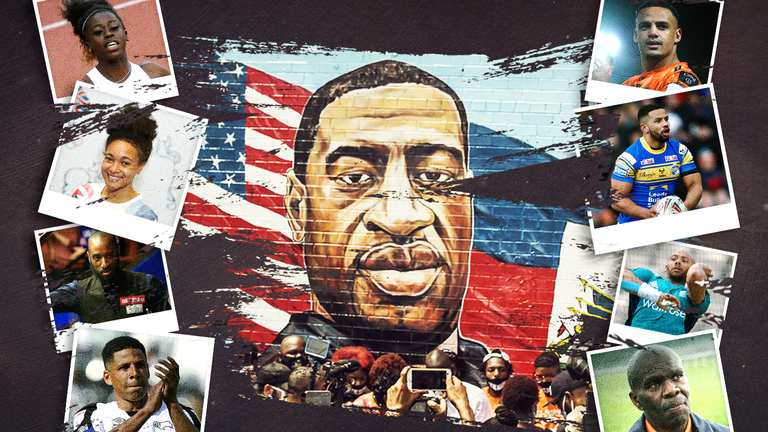
But this isn't just about the kind of racism that sees a police officer kneel on a man's neck for nine minutes and 29 seconds. This isn't just about the kind of racism that involves name-calling and physical attacks. This project is about all forms of racism, even the ones you may not hear about, you may not see, but the ones we still feel.
The horrific events many of us saw on the videos from May 25 will stay with us forever, seeing a man's life slowly drain away as his screams fell silent and his body grew tired. It will be stuck with us forever.
The name George Floyd will always take us back to the events of May 25 and his murder. But this wasn't just an act of violence at the hands of a police officer. This was a consequence of racism so deep-rooted within a system that some people think it's ok to act this way. Just like we've seen countless times before and after May 25, 2020.
This isn't just an issue within the police force in the US, this is an issue that crosses the pond to the UK and affects many organisations right on our doorstep.
So two years on, even though we can still remember the videos, we can still hear his voice. What change has that brought?
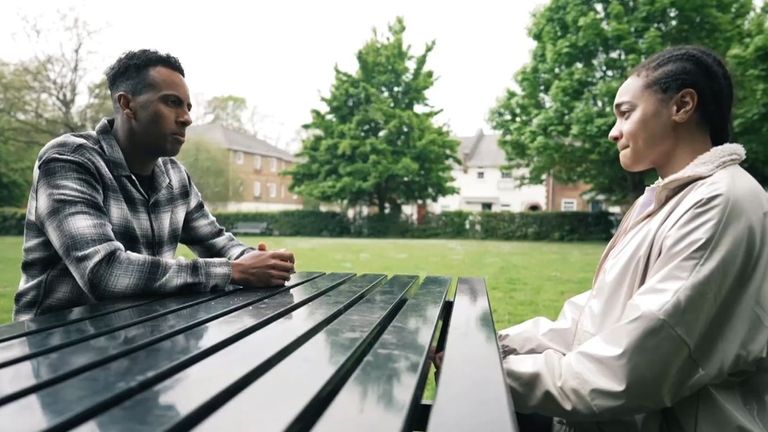
In the days and weeks after May 25, we saw brands and organisations scramble to prove they were "allies".
We had the social media posts saying they were with us, the black squares, the graphics of the black and white hands coming together. It looked like there was action. The conversations were being had. People were forced to confront an issue many of us knew still existed.
So again, what change has this brought?
This project allowed me to speak to these individuals and hear their thoughts on how their sport has changed within the last two years. A lot was promised after George Floyd's murder, and now we can hear if those promises were kept, or if they've been forgotten about. And what these sports governing bodies can do to ensure they are helping to change the culture within them.
I got to explore each individual's journey to get them to the point they are at in 2022. Each of their stories is different. Each explores different challenges they have faced but one thing that surprised me was how one common theme shone through. Resilience.
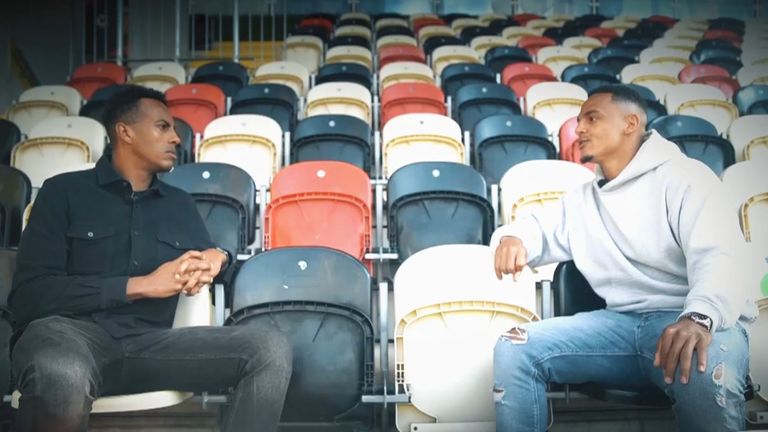
My main take away from working on this project is that yes there are still negatives and organisations can still be doing more (and so they should). We are far from resolving the deep-rooted issue of racism within sporting systems that have been around for hundreds of years.
But these sportsmen and sportswomen are showing us that they are prepared to keep fighting against it. They are tackling this problem head-on and they aren't afraid to speak out for what they think is right.
We may not be there just yet, but from listening to each person throughout this project, I feel more confident that we will get there eventually, and that is down to the bravery of every single person still fighting to end discrimination in all forms.

